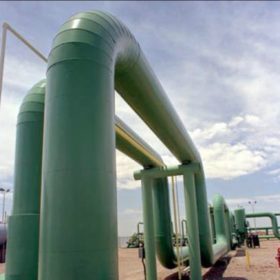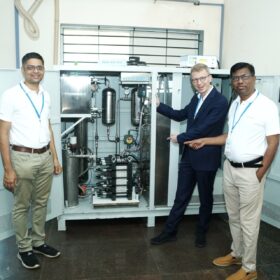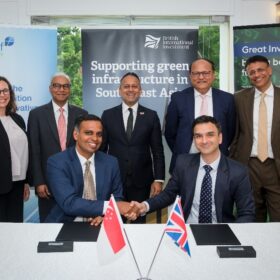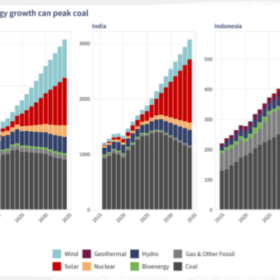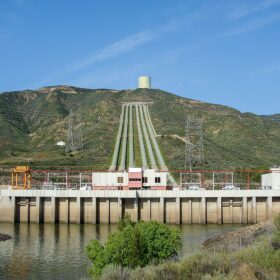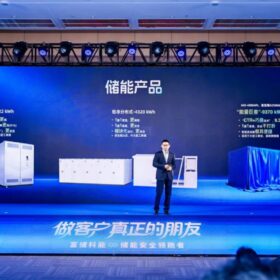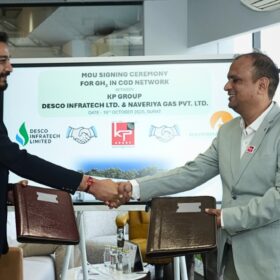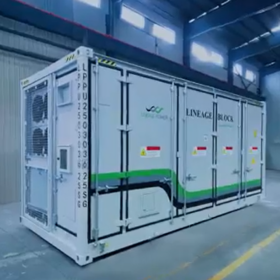Pipelines for the future: Engineering challenges in hydrogen transport
As nations move towards low-carbon economies, hydrogen pipelines could become the backbone of industrial decarbonisation, linking production hubs to demand centres with efficiency, safety, and reliability. Building this backbone is not just an engineering task; it is a strategic investment in a cleaner energy future.
The Hydrogen Stream: HYDGEN raises $5 million to deliver industrial-scale green hydrogen on-site and on-demand
The investment, led by energy transition-focused venture capital firm Transition VC, will accelerate HYDGEN’s efforts to make ultra-pure, cost-efficient hydrogen available directly at the point of use through its anion exchange membrane (AEM) electrolyzer technology.
Blueleaf Energy secures $75 million from BII to advance 2 GW of renewable energy projects
Blueleaf Energy has secured $75 million financing facility from British International Investment (BII) to accelerate development of nearly 2 GW of utility-scale solar, wind, and energy storage capacity in India.
Coal power in India could peak by 2030, says CREA
If India achieves its stated clean energy target, power-sector emissions across this major coal-growth market could begin to decline by 2030, according to a new analysis by the Centre for Research on Energy and Clean Air (CREA).
Unlimited low-cost energy storage
In its latest monthly for pv magazine, the International Solar Energy Society (ISES) explains how pumped-hydro energy storage combined with PV power generation could provide 24/7 power to data centres
Foxconn launches Fox EnerStor brand to enter global energy storage market
Foxconn has launched its Fox EnerStor brand with residential, commercial and industrial (C&I), and utility-scale batteries. It aims to compete globally, with China and India as key hubs for R&D and manufacturing.
OMC Power, Honda Motor partner on energy storage solutions from repurposed EV batteries
OMC Power, a distributed renewable energy (DRE) company targeting 1 GWp clean energy portfolio in India, and Honda Motor have partnered on innovative business models in energy storage and battery repurposing from the electric mobility ecosystem.
Batteries at the heart of India’s energy future: Building a flexible and democratic power system
As India races toward its goal of 500 GW non-fossil fuel capacity by 2030, having already reached 217.62 GW as of January 2025, integrating variable renewable energy sources requires flexible storage solutions that can bridge generation-demand gaps while maintaining grid reliability. The dramatic cost declines, technological innovations, and supportive policy frameworks have created a perfect storm for Battery Energy Storage Systems (BESS) adoption, transforming what was once a nascent technology into a commercially viable solution driving India’s clean energy future and enabling a more flexible, resilient, and decentralized power system.
The Hydrogen Stream: Desco Infratech partners KP Group for hydrogen-natural gas blending projects
Desco Infratech Ltd has signed a Memorandum of Understanding (MoU) with KPI Green Hydrogen and Ammonia and Naveriya Gas for hydrogen-natural gas blending projects in the City Gas Distribution (CGD) sector.
Pace Digitek secures INR 1,159.31 crore BESS contract from SECI
Pace Digitek Ltd will be responsible for end-to-end delivery and ten years of service and maintenance contract for a 600 MW/1200 MWh battery energy storage system (BESS) DC package.
